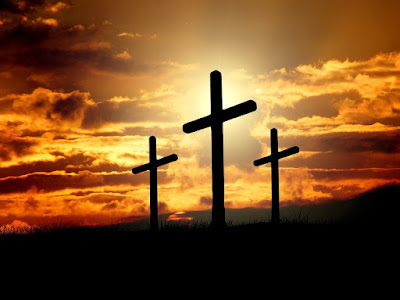As the celebration of our Lord’s substitutionary death and triumphant resurrection approaches, one of two things can happen.
We can spend extra time meditating on what Jesus accomplished on our behalf …
OR …
We can face a tsunami of extra plans and preparations coupled with trying to accomplish five days' worth of work in only four.
True Confession
Because I have extra work to
accomplish this week (thankfully, some of it is even paid work), both in my
office and beyond, I haven’t been spending near the amount of time I would like
to focused on the Saviour.
I am thankful, however, for Christ-centred podcasts that I can listen to while I’m cleaning the church (and my house, although this won’t get near as much of my attention).
While I’m taking my daughter to work and picking her up or toodling around, running errands, I can listen to faith-based podcasts and audiobooks.
Even in the midst of my busyness, there are things I can do to keep my thoughts centred on Jesus and the price He paid on my behalf.
There are also other things happening this week that have the potential to help me focus even more intently on the most profound weekend on the Christian calendar—as long as I don’t let my mind wander to the tasks yet undone:
1. Worship team practice on Thursday night.
2. The Good Friday Service (to be followed by a fellowship lunch).
3. The Resurrection Sunday service (preceded by yet another worship team practice).
And then there’s the amazing reminder in Colossian 3:23, “Whatever you do, work at it with all your heart, as working for the Lord, not for human masters” (NIV). (emphasis mine)
So, whether I’m spending quiet time with the Lord, participating in the church services, cleaning my house, preparing meals, or working in my office, I can turn my thoughts heavenward. I can work at my tasks as if doing them for God—because, ultimately, I am.
This week—or any week—I can and should commit my To-Do List to Him. In fact, I repeatedly make plans to begin each task by committing it to Him. This is not a habit I’ve gotten into, but it is one I intend to work on today and in the days ahead.
So, is the upcoming weekend an inspiration or a distraction?
While it has the potential to be
both, as we take our thoughts captive to obey Christ (2 Corinthians 10:5), even
the distractions can inspire us.
Do you find this week inspiring, distracting, or a bit of both? How do you stay focused on our Saviour when you’re especially busy? How do you point those around you to the One we are to honour each and every day He gives us breath?












